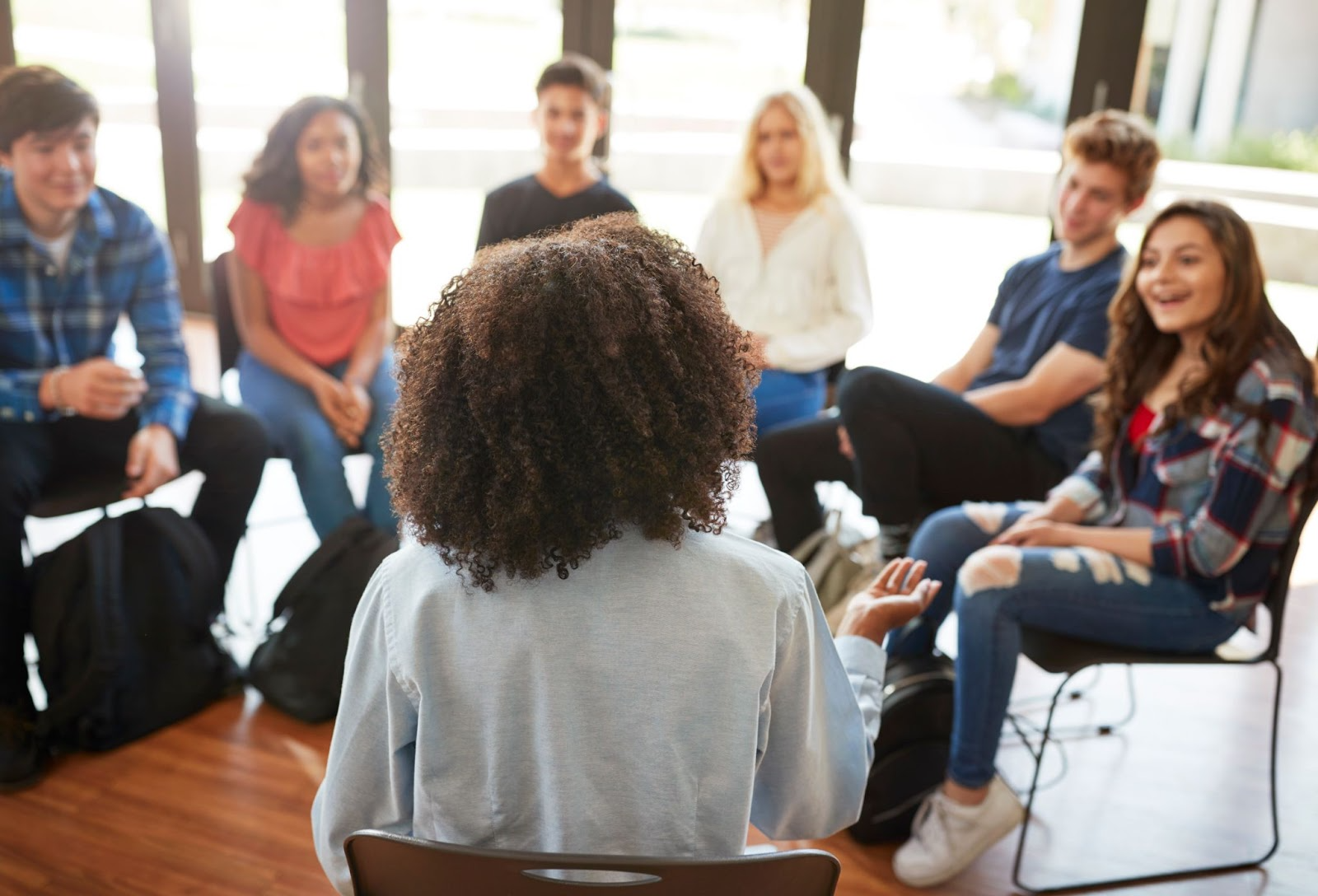What Type of Group Therapy Is Right for You?

When life feels overwhelming, isolating, or uncertain, it’s natural to seek connection and guidance. Group therapy provides a safe and supportive environment where individuals with shared struggles can come together to heal, grow, and learn from one another.
Whether you’re navigating stress, grief, trauma, addiction, or simply feeling “stuck,” group therapy creates space for understanding and transformation.
Here’s the key: not all group therapy is the same.
6 Different Types of Group Therapy
The type of group you choose can significantly impact the progress you make. Some groups focus on teaching practical coping skills, while others dive into emotional processing or provide a sense of shared community. Knowing which group best fits your needs will help you get the most out of your therapy experience.
Let’s explore the primary types of group therapy, their unique benefits, and how to prepare for each one so you can find the best path for your healing journey.
1. Psychoeducational Groups
Psychoeducational groups are designed to teach. If you’re looking for clarity, tools, and practical strategies to manage your struggles, this type of group can be incredibly empowering.
These sessions often blend education with support, giving you both the “why” and the “how” behind your challenges.
Best For: Individuals seeking to learn about mental health conditions, stress management, coping strategies, or how to support loved ones.
What to Expect: Structured sessions with lessons, worksheets, or guided discussions. You’ll walk away with concrete skills and knowledge.
Tips to Prepare: Bring a notebook, ask questions, and stay open to practicing what you learn outside of the group.
How It Helps in Everyday Life: The skills gained here can help you manage symptoms, understand your emotions, and approach life with more confidence and control.
2. Skills Development Groups
If psychoeducational groups give you the “why,” skills development groups give you the “how.” These groups are more hands-on, focusing on teaching and practicing practical tools you can use in real-time.
Best For: Individuals struggling with anxiety, depression, or behavioral challenges who need strategies they can apply immediately.
What to Expect: Practice-based activities like role-playing, mindfulness exercises, and communication training.
Tips to Prepare: Be ready to participate, as these groups thrive on practicing skills together. Take notes on what resonates with you.
How It Helps in Everyday Life: You’ll leave with actionable strategies to manage emotions, build resilience, and handle daily challenges with more ease.
3. Support Groups

Support groups are all about connection and shared experience. When you’ve been through something difficult, knowing you’re not alone can make all the difference.
These groups provide a space where you can feel heard, understood, and supported without judgment.
Best For: Anyone dealing with shared life challenges, such as grief, chronic illness, addiction recovery, or caregiving stress.
What to Expect: A warm, compassionate environment where members share stories, feelings, and encouragement.
Tips to Prepare: Bring openness and honesty. The more you share, the more connected you’ll feel, but listening can be equally powerful.
How It Helps in Everyday Life: You’ll gain a sense of belonging, reduce feelings of isolation, and build a network of support you can lean on outside of sessions.
4. Interpersonal Process Groups
Unlike structured or skills-based groups, interpersonal process groups focus on developing healthy relationships. These sessions create a “living laboratory” where you can explore how you interact with others, practice new ways of relating, and gain insight into your patterns.
Best For: Individuals who want to work on relationship struggles, communication issues, or self-awareness.
What to Expect: Honest, vulnerable conversations guided by a therapist. The focus is on how you relate to others in the group.
Tips to Prepare: Be open to feedback, even when it feels uncomfortable. Approach the group as a safe space for growth.
How It Helps in Everyday Life: By understanding your relationship patterns, you can improve communication, build healthier connections, and enhance your self-esteem.
5. Cognitive Behavioral Groups
CBT groups combine the power of community with the proven effectiveness of cognitive-behavioral therapy. These groups help you identify unhelpful thought patterns and behaviors while learning new, healthier ways of responding.
Best For: People dealing with depression, anxiety, or negative thought cycles who want evidence-based strategies for change.
What to Expect: Structured sessions with worksheets, thought-challenging exercises, and goal-setting activities.
Tips to Prepare: Come ready to track your thoughts and behaviors between sessions. The more effort you put in, the more progress you’ll see.
How It Helps in Everyday Life: You’ll learn how to reframe negative thoughts, shift behaviors, and improve your overall mental outlook.
6. Trauma-Focused Groups

Healing from trauma can feel isolating, but trauma-focused groups create a safe space to process difficult experiences and find strength in shared healing. These groups are carefully structured to provide both safety and empowerment.
Best For: Individuals recovering from traumatic events such as abuse, violence, or loss.
What to Expect: A nurturing environment led by trained therapists, where members explore coping strategies, resilience, and self-care.
Tips to Prepare: Come with patience for yourself, as healing takes time. Know that it’s okay to step back when emotions feel overwhelming.
How It Helps in Everyday Life: Trauma-focused groups help reduce symptoms of PTSD, build resilience, and foster a renewed sense of hope and strength.
Making the Most of Group Therapy
Regardless of the type of group therapy you choose, your willingness to engage will significantly shape your experience.
Here are a few universal tips to help you thrive in any group setting:
-
Be patient with yourself. It takes time to feel comfortable opening up.
-
Listen as much as you share. Insight often comes from hearing others’ stories.
-
Practice outside of the group. Apply what you learn in real-world settings.
-
Stay consistent. Regular attendance helps build trust and momentum.
When you embrace the process, group therapy can become a powerful catalyst for growth, healing, and connection.
Find Your Best Fit With Lewis Family Wellness Center
Choosing the right group therapy is less about “what’s popular” and more about “what feels right for you.” Each type of group offers unique benefits, and the right one will meet you where you are in your journey while helping you move forward.
At Lewis Family Wellness Center, we offer a variety of group therapy options designed to support healing, growth, and transformation. Whether you’re seeking practical tools, emotional support, or deeper relational insight, we’re here to guide you toward the group that fits your needs best.
Ready to find your place in the circle? Contact Lewis Family Wellness Center today to learn more about our group therapy offerings and discover how we can support your path to healing.